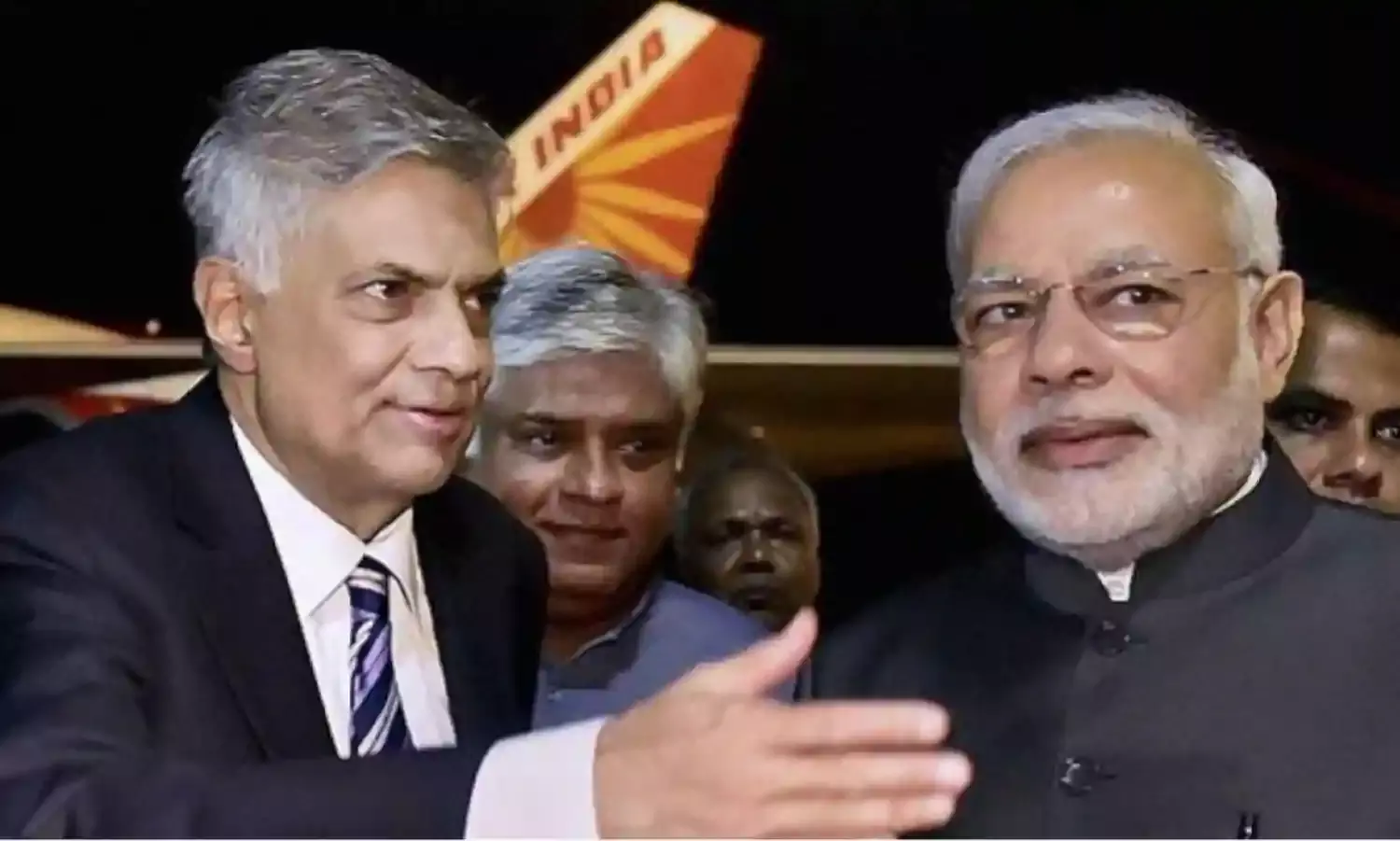Modi-Ranil Talks: Sri Lanka Yet to Decide on Indian Offer to Run Mattala Airport Built by China
Sri Lanka-India talks in New Delhi on November 23

COLOMBO: In the open-ended talks between Sri Lankan Prime Minister Ranil Wickremesinghe and his Indian counterpart Narendra Modi to be held in New Delhi on November 23, the main theme will be speeding up the implementation of joint development projects which were listed in the Indo-Lankan MoU signed in April this year.
India’s offer to invest in the controversial Mattala Airport in Hambantota district is also expected to figure.
Dubbed as the “World’s Emptiest Airport” by Forbes the Mattala airport built by the Chinese during the Presidency of Mahinda Rajapaksa, became an election issue in 2015 and eventually led to Rajapaksa's defeat. But the successor coalition government of President Maithripala Sirisena and Prime Minister Wickremesinghe also found it hard to run the airport .
According to the Indo-Lankan MoU, signed in New Delhi in the presence of Wickremesinghe and Modi, the two countries pledged to develop the 84 oil tanks in the Upper Tank Farm, giving 10 tanks to the CPC for its exclusive use. The two countries will also sign a 50 year land lease agreement in regard to the tank farm which has 99 tanks spread over a vast area.
Further, India and Sri Lanka will jointly make investments in the development of the Trincomalee port, a petroleum refinery and other industries in the vicinity of the port. India will set up a 50 MW (extendable to 100 MW) Solar Power Plant in Sampur near Trincomalee.
India will join the CPC to set up a Liquefied Natural Gas (LNG) fired 500 Megawatts capacity LNG Power Plant as well as LNG Terminal or Floating Storage Re-gasification Unit (FSRU) in Kerawalapitiya near Colombo. India will also assist Sri Lanka in the enhanced use of Natural Gas, including the setting up of a piped gas distribution system in Colombo and in suburban areas in Sri Lanka; help set up retail outlets for the supply of Compressed Natural Gas (CNG) to the transportation sector in Sri Lanka; and convert fuel-based power plants to LNG power plants.
India and Sri Lanka will set up Industrial Zones or Special Economic Zones in other locations also. India will develop the Dambulla-Trincomalee road as an Expressway through joint investments with Sri Lanka. The development of the Mannar-Jaffna and Mannar-Trincomalee highways is also on the cards. India pledged to develop the railway sector in Sri Lanka through projects relating to track upgrading and the purchase of rolling stock.
India and Sri Lanka will encourage Indian companies to invest in a container terminal in Colombo Port (the Eastern Terminal), considering that 70 percent of the Colombo port’ business is Indian trans-shipment.
In the six months since the signing of the MoU, there has been some progress in the project relating to the LNG plant in Kerawalapitiya. But other projects appear to be caught up in delays on the Sri Lankan side as the government is embroiled in conflicts both within the ruling coalition and in the Sri Lankan polity at large in the run up to elections to the local bodies in January 2018.
The controversial issue of developing the Trincomalee oil tanks cannot be pursued now, because of a court case in which the workers’ union at the Ceylon Petroleum Corporation has challenged the 2003 Indo-Lankan agreement by which Sri Lanka gave the 99 giant tanks to India.
India’s proposal to invest in the development of the Eastern Container Terminal at Colombo port will also not come up as the Sri Lankan President Maithripala Sirisena has already publicly said that the terminal will be executed by the Sri Lanka Ports Authority (SLPA).
As regards Mattala Airport, India had proposed in August this year, to “operate, manage, maintain and develop” it through a joint venture, with India holding 70% of the equity for 40 years. India was to invest US$ 205 million with Sri Lanka pitching in with $88 million.
The Indian offer had come within weeks of a Sri Lanka-China agreement on the development of Hambantota port in which the state-run China Merchants Port Holdings will have a 70% stake in a joint venture for a period of 99 years. India is trying to get an equally good deal.
The Sri Lankan government is yet to take a decision on the Indian offer. India is looking at the acquisition mainly as a strategic asset in the Indian Ocean though the airport might be able to make money from tourism which is bound to boom due to the development of the Hambantota port and the Chinese-run economic zone to come up there.
The Sri Lankan government, however, faces political opposition to the handing over strategic assets to India. Even the handing over of Hambantota port to “all-weather friend” China, was problematic with Colombo having had to review the Framework Agreement and make other changes under public pressure.
Given India’s unease with China, which is getting economically and strategically entrenched in Sri Lanka, Indian Prime Minister Modi is expected to prevail upon Wickremesinghe not to put too all his eggs in the Chinese basket and blindly become part of China’s controversial One Road One Belt (OBOR) project.
Modi would urge Wickremesinghe to side with India, which is closer not only geographically but also in terms of political and social culture.



